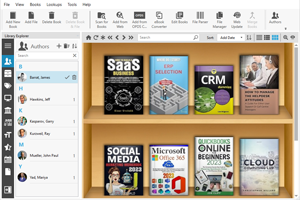4 books on Logistics Software [PDF]
Updated: February 27, 2024 | 27 |
Books on Logistics Software are invaluable resources for startups in the logistics software industry. These publications provide in-depth insights into the complex world of supply chain management and transportation, offering guidance on how to develop, implement, and optimize software solutions tailored to the unique needs of logistics businesses. They cover topics like route optimization, warehouse management, demand forecasting, and integration with emerging technologies, helping startups navigate the ever-evolving landscape of logistics technology. Moreover, these books often feature case studies and real-world examples, shedding light on successful strategies and potential pitfalls, offering valuable lessons that can save time, resources, and help new logistics software companies make informed decisions as they enter a competitive and rapidly evolving market.
1. The Digital Transformation of Logistics: Demystifying Impacts of the Fourth Industrial Revolution
2021 by Mac Sullivan, Johannes Kern

The ongoing digital transformation is fundamentally reshaping our lifestyles, professional landscapes, and modes of communication. Industries across the board, from retail to finance, are witnessing the influx of innovative technologies, disruptive platform business models, and a workforce grappling with substantial changes. The Logistics and Supply Chain Management sectors are also expected to undergo a profound shift during this Fourth Industrial Revolution, marked by the automation of delivery systems, the establishment of smart networks, and the ubiquitous collection and analysis of data. "The Digital Transformation of Logistics: Demystifying Impacts of the Fourth Industrial Revolution" offers a comprehensive overview of this critical topic, untangling it from the buzz, hype, and misinformation that often surround it. The book is structured into three thematic sections: Technologies like self-driving cars and virtual reality, once confined to the realm of science fiction, are now positioned as transformative solutions to supply chain challenges. The authors meticulously explore the technologies generating excitement, such as the Internet of Things (IoT), 3D printing, Robotic Process Automation (RPA), Blockchain, and Cloud computing, providing use cases that offer glimpses into the intriguing future ahead. The disruption caused by platforms facilitating centralized acquisition and management of logistics services is discussed, with insights into smart contracts, a compelling application of Blockchain, Software as a Service (SaaS) offerings for automated freight procurement, and the role of marine terminal operating systems in shipping. The book delves into the cold chain industry's response to heightened quality demands and innovative governmental approaches in Europe to address cross-border eCommerce challenges. Recognizing people as crucial components of digital transformation, the authors elucidate how executives can instigate sustainable impact and manage competencies in the digital age, particularly emphasizing the urgent upskilling required for sales executives to remain relevant. Best practices are shared for fostering organizational culture change, drawing on studies among senior leaders from the US, Singapore, Thailand, and Australia, and for strategically managing alliances with logistics service providers to mitigate risks and foster cross-functional, cross-company transparency. "The Digital Transformation of Logistics: Demystifying Impacts of the Fourth Industrial Revolution" offers pragmatic insights, a readily applicable knowledge base, and a comprehensive vocabulary to comprehend current activities and emerging trends in the logistics industry. The book caters to supply chain professionals in manufacturing, trading, and freight forwarding companies, as well as students and all individuals interested in the subject.
Download PDF
2. Distribution and Logistics
2020 by Dr. V.V.L.N. Sastry

Within supply chain management, distribution represents the process of ensuring a product or service is readily available to the customer or commercial user in need (Brandimarte & Zotteri, 2007). Conversely, logistics involves the strategic management of the movement of goods from the point of origin to the point of consumption, aiming to fulfill the requirements of clients or businesses (Brandimarte & Zotteri, 2007). These processes are integral components of effective supply chain management. Therefore, to gain a thorough understanding of distribution and logistics, it is essential to critically examine key concepts such as logistics, logistics complement, cargo, cargo airline, cargo sampling, cargo scanning and delivery, freight company, freight transport association, standard carrier alpha code and document automation, freight claim, logistics automation and performance-based logistics, distribution (business), agricultural marketing, all commodity volume, import and export, and incoterms.
Download PDF
3. Logistics and Retail Management: Insights Into Current Practice and Trends from Leading Experts
2004 by John Fernie, Leigh Sparks

"Logistics and Retail Management: Insights Into Current Practice and Trends from Leading Experts" receives praise for being extremely valuable material for any student of retail logistics, providing well-written and relevant content that is considered a worthwhile acquisition by the International Journal of Logistics. Over the past decade, the retail logistics landscape has witnessed steady improvements and transformative relationship changes, crucial for enhancing business efficiency and gaining a competitive advantage. The focus has shifted towards minimizing time to market, optimizing on-shelf availability, continual stock replenishment, and leveraging technology to revolutionize the retail supply chain. Internationalization and the rise of e-commerce have introduced new challenges for logisticians. The second edition of this fully updated book brings together renowned academics and practitioners, sharing their research, ideas, and experiences in retail logistics in the 21st century. The comprehensive content covers topics such as changes and challenges in retail logistics, supply chain relationships, market orientation, fashion logistics, temperature-controlled supply chains, e-tail logistics, and transformative technologies like retail exchanges and RFID. This book is essential reading for retail and logistics managers, academics, students, and consultants.
Download PDF
4. Integral Logistics Management: Planning and Control of Comprehensive Supply Chains, Second Edition
2003 by Paul Schönsleben

To achieve success, companies need to enhance business processes at a holistic, coordinated level. In the second edition of "Integral Logistics Management: Planning and Control of Comprehensive Supply Chains," logistics is explored beyond the conventional flow of goods. The book delves into administrative and planning logistics, emphasizing process control as a crucial aspect of comprehensive supply chain management.
Download PDF
How to download PDF:
1. Install Google Books Downloader
2. Enter Book ID to the search box and press Enter
3. Click "Download Book" icon and select PDF*
* - note that for yellow books only preview pages are downloaded
1. The Digital Transformation of Logistics: Demystifying Impacts of the Fourth Industrial Revolution
2021 by Mac Sullivan, Johannes Kern

The ongoing digital transformation is fundamentally reshaping our lifestyles, professional landscapes, and modes of communication. Industries across the board, from retail to finance, are witnessing the influx of innovative technologies, disruptive platform business models, and a workforce grappling with substantial changes. The Logistics and Supply Chain Management sectors are also expected to undergo a profound shift during this Fourth Industrial Revolution, marked by the automation of delivery systems, the establishment of smart networks, and the ubiquitous collection and analysis of data. "The Digital Transformation of Logistics: Demystifying Impacts of the Fourth Industrial Revolution" offers a comprehensive overview of this critical topic, untangling it from the buzz, hype, and misinformation that often surround it. The book is structured into three thematic sections: Technologies like self-driving cars and virtual reality, once confined to the realm of science fiction, are now positioned as transformative solutions to supply chain challenges. The authors meticulously explore the technologies generating excitement, such as the Internet of Things (IoT), 3D printing, Robotic Process Automation (RPA), Blockchain, and Cloud computing, providing use cases that offer glimpses into the intriguing future ahead. The disruption caused by platforms facilitating centralized acquisition and management of logistics services is discussed, with insights into smart contracts, a compelling application of Blockchain, Software as a Service (SaaS) offerings for automated freight procurement, and the role of marine terminal operating systems in shipping. The book delves into the cold chain industry's response to heightened quality demands and innovative governmental approaches in Europe to address cross-border eCommerce challenges. Recognizing people as crucial components of digital transformation, the authors elucidate how executives can instigate sustainable impact and manage competencies in the digital age, particularly emphasizing the urgent upskilling required for sales executives to remain relevant. Best practices are shared for fostering organizational culture change, drawing on studies among senior leaders from the US, Singapore, Thailand, and Australia, and for strategically managing alliances with logistics service providers to mitigate risks and foster cross-functional, cross-company transparency. "The Digital Transformation of Logistics: Demystifying Impacts of the Fourth Industrial Revolution" offers pragmatic insights, a readily applicable knowledge base, and a comprehensive vocabulary to comprehend current activities and emerging trends in the logistics industry. The book caters to supply chain professionals in manufacturing, trading, and freight forwarding companies, as well as students and all individuals interested in the subject.
Download PDF
2. Distribution and Logistics
2020 by Dr. V.V.L.N. Sastry

Within supply chain management, distribution represents the process of ensuring a product or service is readily available to the customer or commercial user in need (Brandimarte & Zotteri, 2007). Conversely, logistics involves the strategic management of the movement of goods from the point of origin to the point of consumption, aiming to fulfill the requirements of clients or businesses (Brandimarte & Zotteri, 2007). These processes are integral components of effective supply chain management. Therefore, to gain a thorough understanding of distribution and logistics, it is essential to critically examine key concepts such as logistics, logistics complement, cargo, cargo airline, cargo sampling, cargo scanning and delivery, freight company, freight transport association, standard carrier alpha code and document automation, freight claim, logistics automation and performance-based logistics, distribution (business), agricultural marketing, all commodity volume, import and export, and incoterms.
Download PDF
3. Logistics and Retail Management: Insights Into Current Practice and Trends from Leading Experts
2004 by John Fernie, Leigh Sparks

"Logistics and Retail Management: Insights Into Current Practice and Trends from Leading Experts" receives praise for being extremely valuable material for any student of retail logistics, providing well-written and relevant content that is considered a worthwhile acquisition by the International Journal of Logistics. Over the past decade, the retail logistics landscape has witnessed steady improvements and transformative relationship changes, crucial for enhancing business efficiency and gaining a competitive advantage. The focus has shifted towards minimizing time to market, optimizing on-shelf availability, continual stock replenishment, and leveraging technology to revolutionize the retail supply chain. Internationalization and the rise of e-commerce have introduced new challenges for logisticians. The second edition of this fully updated book brings together renowned academics and practitioners, sharing their research, ideas, and experiences in retail logistics in the 21st century. The comprehensive content covers topics such as changes and challenges in retail logistics, supply chain relationships, market orientation, fashion logistics, temperature-controlled supply chains, e-tail logistics, and transformative technologies like retail exchanges and RFID. This book is essential reading for retail and logistics managers, academics, students, and consultants.
Download PDF
4. Integral Logistics Management: Planning and Control of Comprehensive Supply Chains, Second Edition
2003 by Paul Schönsleben

To achieve success, companies need to enhance business processes at a holistic, coordinated level. In the second edition of "Integral Logistics Management: Planning and Control of Comprehensive Supply Chains," logistics is explored beyond the conventional flow of goods. The book delves into administrative and planning logistics, emphasizing process control as a crucial aspect of comprehensive supply chain management.
Download PDF
How to download PDF:
1. Install Google Books Downloader
2. Enter Book ID to the search box and press Enter
3. Click "Download Book" icon and select PDF*
* - note that for yellow books only preview pages are downloaded


